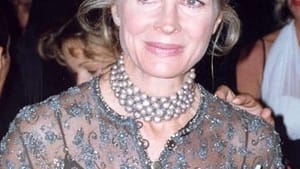Stay in the Loop
BSR publishes on a weekly schedule, with an email newsletter every Wednesday and Thursday morning. There’s no paywall, and subscribing is always free.
Memory serves
When Donald met Candice

“Never let the truth get in the way of a good story.”
Mark Twain’s cynical 19th-century advice to journalists remains alive and well in the 21st century. Consider a news story whose particulars are so appealing it has flourished and inflated for 25 years, even though it probably never happened.
In May 1992, when Candice Bergen was the star of the popular TV series Murphy Brown, she was given an honorary doctorate from her alma mater, the University of Pennsylvania. In the course of her remarks, Bergen mentioned that she once turned down Donald Trump, whom she said tried to date her when she was a Penn undergrad and he attended Penn’s Wharton School.
In those days, Bergen said, Trump was “hard to miss,” with his “two-piece burgundy suit with matching burgundy patent-leather boots and [a] matching burgundy limousine.”
At the time, Bergen was a bona fide celebrity and Trump was a celebrity wannabe, having just filed for bankruptcy protection for one of his casinos. So he was no doubt delighted to be linked in the public mind with both a TV star and a prestigious Ivy League institution. When Entertainment Weekly called him to confirm this alleged date, he declined to quash the story.
“The Casino King concedes he may have tried to develop a relationship with Bergen,” the magazine reported. "'So did everybody else,’ Trump says. ‘She was very beautiful and totally terrific.'”
"Home by nine"
The story resurfaced in August 2015 when Trump, by then the Republican presidential frontrunner, reminisced about Bergen’s Penn days in a Boston Globe interview. “She was dating guys from Paris, France, who were 35 years old, the whole thing,” he recalled. “I did make the move, and I must say she had the good sense to say, ‘Absolutely not.'”
Nevertheless, a new iteration of this story surfaced this fall when Bergen — no longer an A-list celebrity — appeared on Watch What Happens Live with Andy Cohen. This time, when Cohen asked her if she ever dated our current president, Bergen answered affirmatively and added a few more details. Now she had Trump wearing a three-piece burgundy suit. As for the date itself: “I was home very early. There was no physical contact whatsoever.” Trump, she added, was “a good-looking guy — and a douche.”
The following day, on an episode of Harry with Harry Connick Jr., Bergen elaborated further: “I was 18. He was a nice-looking guy. I mean, he was. I was in college, and it’s where he was going to be going to college. It was like a blind date. He called me in the dorm, and I was bored. It was very color-coordinated and I was home by nine.”
Never mind that Bergen and Trump never attended Penn at the same time. (Bergen dropped out at the end of her sophomore year in the spring of 1965; Trump arrived in the fall of 1966 as a junior transfer from Fordham.) Without apparent fact-checking, the story of this alleged campus date was subsequently reported in such reputable media outlets as Time, US Weekly, the Los Angeles Times, and the New York Daily News.
Believe it... or not
What’s going on here is a phenomenon I describe as “encouraged memory,” by which people tend to adjust their recollections to suit their fantasies and others latch onto those narratives for similar reasons. NBC’s Brian Williams claimed his helicopter came under fire during the U.S. invasion of Iraq. During the 2008 presidential campaign, Hillary Clinton described dashing across the tarmac to dodge sniper fire when she visited Bosnia as First Lady in 1996. As an 11-year-old in Kansas Territory in 1857, William F. Cody worked briefly as a local horseback courier for the freighting company that later launched the fabled Pony Express; on this slender basis, Buffalo Bill later claimed to have been a Pony Express rider.
"Memory has a 'superiority complex,'" says Elizabeth Loftus, professor of psychology and social behavior at the University of California. “We remember we got better grades than we did, that we voted in elections we didn't vote in, that we gave more money to charity than we did, that our kids walked and talked earlier than they really did. It's not that we're lying — it's just something that happens naturally to allow us to feel a bit better about ourselves."
Which brings me to America’s fantasist-in-chief. This week, President Trump claimed that last year’s infamous Access Hollywood tape — on which he boasted about his sexual assaults — might not be authentic. This claim raises an intriguing question: how do you question the authenticity of something for which you’ve already apologized? On the other hand, Bergen’s own revisions suggest that the difference between Trump and the rest of us may be just a matter of degree.
Sign up for our newsletter
All of the week's new articles, all in one place. Sign up for the free weekly BSR newsletters, and don't miss a conversation.

 Dan Rottenberg
Dan Rottenberg